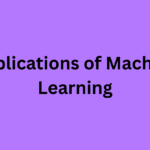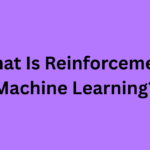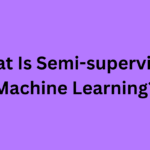Python Tutorial
Chapter 1: Introduction to Python
1.1 History and Features of Python
1.2 Applications of Python (Web, Data Science, AI)
1.3 Python Installation and Environment Setup
1.4 Running Python Scripts (IDLE, Terminal, IDEs)
1.5 First Python Program: print() and input() Functions
Chapter 2: Variables, Data Types and Operators
2.1 Variables and Constants
2.2 Basic Data Types: int, float, str, bool
2.3 Type Conversion and Type Casting
2.4 Operators: Arithmetic, Comparison, Logical, Assignment
2.5 Operator Precedence and Associativity
Chapter 3: Control Structures
3.1 Conditional Statements: if, if-else, elif
3.2 Loops: while loop, for loop
3.3 Loop Control Statements: break, continue, pass
3.4 Nested Loops and Conditional Blocks
3.5 Practical Programs: Pattern Printing, Number Guessing
Chapter 4: Strings and String Manipulation
4.1 Creating and Accessing Strings
4.2 String Methods: upper(), lower(), find(), replace(), split()
4.3 String Slicing and Indexing
4.4 String Formatting (f-strings, format())
4.5 Use Cases: Palindromes, Anagrams
Chapter 5: Lists, Tuples, and Sets
5.1 Introduction to Lists and Operations
5.2 List Methods: append(), pop(), sort(), reverse()
5.3 Tuples: Characteristics and Use-Cases
5.4 Sets and Set Operations: union(), intersection(), difference()
5.5 List Comprehension and Advanced Slicing
Chapter 6: Dictionaries and Data Structures
6.1 Creating and Accessing Dictionaries
6.2 Dictionary Methods: keys(), values(), items(), get()
6.3 Nested Dictionaries
6.4 Data Structure Use-Cases: Student Records, Lookup Tables
6.5 Iterating through Dictionaries and Conversion
Chapter 7: Functions and Modular Programming
7.1 Defining and Calling Functions
7.2 Parameters, Return Values, and Scope
7.3 Lambda Functions
7.4 Recursion and its Applications
7.5 Modules and Packages (math, random, datetime)
Chapter 8: File Handling
8.1 Reading from and Writing to Files
8.2 File Modes: r, w, a, rb, wb
8.3 Working with Text and CSV Files
8.4 Exception Handling in File Operations
8.5 Case Study: Student Grade Management
Chapter 9: Object-Oriented Programming in Python
9.1 Classes and Objects
9.2 Constructors and _init_() Method
9.3 Inheritance, Polymorphism, Encapsulation
9.4 Method Overriding and super()
9.5 Real-Life Examples Using OOP
Chapter 10: Error Handling and Exceptions
10.1 Types of Errors: Syntax vs Runtime
10.2 Exception Handling using try, except, finally
10.3 Raising Custom Exceptions
10.4 Use Cases: User Input Validation
10.5 Debugging with traceback and Logging
Chapter 11: Python with External Libraries
11.1 Installing and Using Pip
11.2 NumPy Basics for Scientific Computing
11.3 Matplotlib for Simple Graphs
11.4 Pandas Basics for Tabular Data
11.5 Simple Data Projects using Pandas
Chapter 12: Mini Projects and Real-world Applications
12.1 Project 1: Contact Book or To-Do App (CLI)
12.2 Project 2: Weather App using API
12.3 Project 3: Basic Data Analysis with CSV
12.4 Project 4: File Organizer Script
12.5 Final Project Presentation and Code Review






